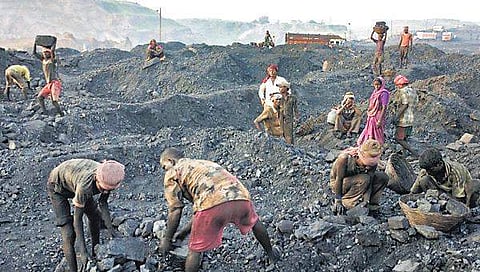

Very recently an English news TV channel brought out mining baron Shekhar Reddy’s alleged diary, detailing the payments made to a large number of AIADMK politicians in Tamil Nadu, as well as officials from both state and Central departments. As this is being written, there is no conclusive evidence that the diary is authentic. It is an open secret that nearly every minister, in every state government, is seen to be corrupt. It is well recognised by all (except by our Election Commission, police authorities, investigating and prosecution agencies, the Central and state home ministries, indeed the judiciary), that nothing will happen unless money changes hands. Nearly every decision in every state government is driven not by public-interest considerations, but by money power.
If the Shekhar Reddy document is genuine, it is not difficult to see the connection as to how India is performing so badly in every human index assessment; why India is in the bottom 5 per cent of every attribute relating to the human condition—poverty, hunger, stunting, anaemia, education, drinking water, urban degradation, continuing tragedy in the agriculture sector.
This also implicitly explains as to why 0.1 per cent of the population is richer than the bottom 50 per cent, why the bottom 20 per cent of the population is in unspeakable abysmal poverty after 70 years of development—the clear explanation for India’s failure not to achieve a miniscule fraction of the promise of Independence/Republic can be seen here.
In its larger dimension, this diary describes the anatomy of a state administration, and the accessibility of state authorities to be purchased. Note that the Chief Secretary of the state, appointed by J Jayalalithaa, had superseded at least 15 officers senior to him, over at least four batches, to be found the ‘fittest’ to be appointed to that post—it was speculated that he was close to the mining baron. The political class needs the active involvement of the bureaucracy in their interests.
Santanam in the ’60s, himself a Member of Parliament, recognised the growing corruption in the executive, and realised that the system will collapse if this menace is not tackled. Is it an accident that for 50 years after the demand for a ‘Lokpal’, this institution is not yet in position? One would surmise that no politician ever will want a clean-up. It is no surprise that it allegedly takes `20-30 crores for an average MLA election, about `50 crores for MP—one even learnt, rightly or wrongly, that in many municipal corporations, the ‘going rate’ for corporator is `30 crores. It is precisely this class of ‘enlightened’ leaders, who control all the ‘lucrative industries’ like education, public health, regulatory regimes—it will be a foolish person who will expect from them reforms in any area.
Surely, if one had a Lokpal, he would within one month examine the Reddy diary, and come to a prima facie conclusion as to the involvement or relationship of those influential persons named. If he felt that there was a prima facie case, all these would be asked to step down from their official positions till the matter was settled in judicial process. Given our current effete, inept, inert, highly influenciable investigative and prosecution apparatus, the likelihood is that the Shekhar Reddy diary would be a three-day phenomenon, to be replaced by a murder or a road accident or a local communal incident.
It is imperative that the diary should be investigated for its authenticity, in a credible and swift manner. If the diary is genuine, all concerned should be investigated and punished within six months. The present Central government has surely shown the intention for clean governance, at least in Delhi. But the real India is in state governments and districts. India’s survival will depend on how the issue of corruption is addressed. tsrsubramanian@gmail.com